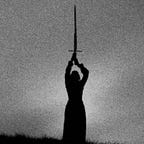The Mad Monk of Russia who refused to die
In 1904, Tsarina Alexandra gave birth to the Russian heir, Alexei Nikolaevich. As the youngest child and only son, his birth was the cause of great joy and celebration. But fate didn’t tarry in taking a cruel turn. Soon enough, he was diagnosed with haemophilia — a bleeding disorder which stops the blood from clotting properly. It was dubbed as the “Royal Disease” because it affected many of the descendants of intermarried European families. Alexei is said to have inherited it from his mother who in turn inherited it from her grandmother, Queen Victoria.
His haemophilia was so severe that a minor cut could turn to be fatal. Sometimes he couldn't walk due to the pain in his joints and had to be carried around by sailors. The disorder hampered his childhood and education and proved to be the cause of immense worry for his parents.
None of the doctors could cure his conditions, neither could they alleviate his symptoms. When the Russians, who were already brimming with hostility towards the German-born Alexandra, learned about Alexei’s condition they were quick to blame her for the heir’s disease. Deeply disturbed, Alexandra desperately searched for a miracle that could heal her son.
Enter Rasputin.
A peasant healer, he was popularly known as the “mad monk.” Though he wasn’t particularly favoured by the Tsar, the Tsarina had tremendous faith in his healing powers. She sent him a telegram to which he responded — “The little one will not die. Do not allow the doctors to bother him too much”
It was Rasputin and only Rasputin who could alleviate the boy’s symptoms (though he couldn’t completely cure the disorder.) There are countless explanations that are offered to explain this strange phenomenon — some say he used hypnosis, others say he stopped the administration of aspirin. His own daughter, Maria believed he made use of magnetism. Whatever may be the truth, Rasputin managed to cement his reputation as a mystic in the eyes of Tsarina who instructed her children to view him as “Our Friend.”
He gained power and status in the court. It wasn’t mystical episodes that were responsible for his surreal influence, but rather his belief in his own supernatural powers, a belief he held without an iota of doubt.
He was a controversial figure, shrouded in myth and mystery. His numerous critics denounced him as a heretic. Stories of sexual misconduct piled on. He was accused of rape by one of his own supporters.
As the Russian empire lay on the brink of collapse, the public held him responsible for their troubles along with Alexandra who was intensely reviled as “ a German on the Russian throne and alien to the country and its people.”
Rasputin was stubborn, especially in matters of death.
When a peasant woman, Chionya Guseva stabbed him in 1914, everyone was sure the stab spelt death. But to their despair, after a surgery in a hospital in Tyumen, he recovered.
It was becoming increasingly clear that if the monarchy had to be saved, Rasputin would have to be killed.
So three nobles — Prince Felix Yusupov, Grand Duke Dmitri Pavlovich, and Vladimir Purishkevich hatched a conspiracy. Yusupov invited Rasputin to his home and took him to the basement on his arrival. He offered cakes and tea, the former being Rasputin’s favourite. After declining the cakes initially, perhaps out of formality, he proceeded to gorge on them. As he washed down them down with tea, Yusupov glared at him with eyes filled with shock.
The cakes were laced with cyanide, strong enough to drag not one, but many to the gates of hell.
But there sat Rasputin, devouring the cakes, blissfully unaware. Minutes later he asked for Madeira wine.
Yusupov offered him a glass that *no points for guessing* was also poisoned.
He gulped three glasses and showed no signs of discomfort.
Two hours after midnight, Yusupov admitted that he would need something stronger than cyanide. He excused himself to go upstairs, only to return with a revolver. Rasputin was admiring the decor in the basement when Yusupov remarked, “better look at the crucifix and say a prayer.” Just after he had uttered the words, he fired at Rasputin.
Rasputin fell to the ground.
The three drove back to Rasputin’s apartment, with one of them dressed in his coat and hat to make it seem as if he has returned home.
When they got back to the basement, Yusupov who was feeling quite uneasy walked up to the body to make sure it was lifeless. He was dead — or at least that’s what it seemed like until Rasputin pounced on him, his viper like green eyes shining with fury. He attacked Yusupov resulting in a brawl.
Yusupov managed to escape from his grip and ran upstairs. Still breathing, unlike a man who had just been shot, Rasputin crawled up the stair, only to get up and run into the palace courtyards. Purishkevich shot at Rasputin but missed him. Two more bullets were fired before he succumbed to the ground again.
Only this time, he was dead.
For good.
They had his body wrapped in blankets and chains and dumped it into an unfrozen patch in the Neva river.
Later in his memoir, Yusupov wrote:
“This devil who was dying of poison, who had a bullet in his heart, must have been raised from the dead by the powers of evil. There was something appalling and monstrous in his diabolical refusal to die.”
His death was met with celebration. Only the Tsar’s family was present at the funeral.
Before Rasputin died, he prophetically growled at Yusupov “Disaster will come to anyone who lifts a finger against me.”
His words proved to be true as the Russian resolution of 1917 led to the collapse of the monarchy and ended the institution of the Tsar and his nobles.
